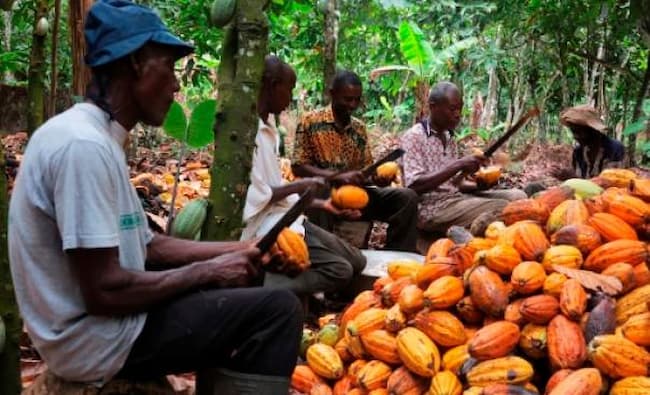The Nigerian government is prioritising the export of cocoa and soybean to other African markets under the African Continental Free Trade Area agreement (AfCFTA).
The AfCFTA, the world’s largest free trade area in terms of the number of participating countries commenced on January 1, signaling the implementation of Africa’s single market.
The National Action Committee on the AfCFTA in its newsletter on Monday said Nigerian exporters seeking to trade Cocoa under the AfCFTA could consider exporting to South Africa, Egypt, and Algeria.
Nigeria is the sixth-largest producer of cocoa with about 190,000 metric tonnes of the product annually.
The committee said exporters can sell cocoa to other African countries in form of cocoa bean (broken, raw, or roasted), cocoa powder, cocoa shells, husks, skins, and cocoa waste as well as chocolate, cocoa butter, fats, and oil.
READ ALSO: Nigeria’s Duty-Free Export To US Shrinks To $462.2m
The committee added that soybean can be exported to Egypt, Egypt, Tunisia, Algeria, South Africa, Zimbabwe, and Kenya.
The Secretary, National Action Committee on the AfCFTA, Francis Anatogu, noted that achieving success with the AfCFTA meant creating a diversified and sustainable Nigerian economy with strong linkages with our neighbours and other top economies within Africa and in doing this.
According to him, Nigeria is committed to creating a globally acceptable brand in order to compete in the African market.
He said, “Our mandate as approved by President Muhammad Buhari remains to support the efforts of Ministries, Departments, and Agencies of government, stakeholder associations, and businesses to realise the benefits of the AfCFTA.
Anatogu identified challenges encountered by the committee in achieving this mandate as production and productivity challenges, infrastructure constraints, insecurity, predatory trade practices, funding constraints and regulatory constraints.
READ ALSO: Nigeria’s Trade With Asia Higher Than Rest Of Africa
According to him, the target of the committee is to surmount these hurdles quickly and create a smooth and seamless process for trading under the AfCFTA.
He said, “AfCFTA is a marathon and not a sprint and the race towards improving and solidifying intra-African trade just kicked off.”












